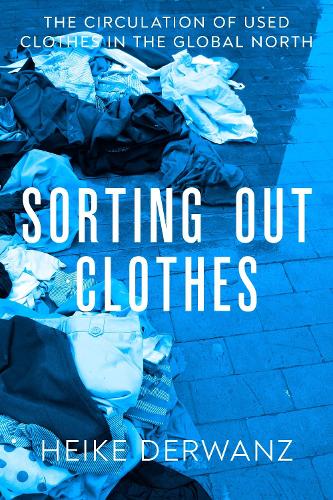
Sorting Out Clothes: The Circulation of Used Clothes in the Global North
(Paperback)
Available Formats
Publishing Details
Sorting Out Clothes: The Circulation of Used Clothes in the Global North
By (Author) Dr Heike Derwanz
Bloomsbury Publishing PLC
Bloomsbury Visual Arts
11th June 2026
United Kingdom
Classifications
Tertiary Education
Non Fiction
Fashion and beauty industries
Textiles and fibres
Circular economic systems / Regenerative economics
Social and cultural anthropology
Material culture
Physical Properties
Paperback
240
Width 156mm, Height 234mm
Description
What can one city tell us about the global textile waste problem This Open Access study is the first detailed ethnography of clothing waste infrastructures that starts where the problem starts the Global North.
Based on more than 100 interviews, cultural anthropologist Heike Derwanz follows the journey of fast fashion in Hamburg, Germany: starting with two women from different socio-economic backgrounds sorting through their wardrobes, travelling through local flea markets, eBay, church clothes banks, upcycling brands and recycling sites, only to end up in homes and waste heaps in the Global South. Bringing together human agents such as designers, social workers and vintage sellers with objects from containers, plastic sacks and internet platforms to piles of sorted textiles, this on-the-ground cultural study reveals how the global economic system of fast fashion shapes local infrastructures entangled in everyday lives.
Combining material culture, waste studies and economic perspectives to scrutinize the so-called circular economy of todays global textile recycling market, Derwanz investigates what agency modern consumers really have in the lifecycle of their clothes.
The ebook editions of this book are available open access under a CC BY-NC-ND 4.0 licence on bloomsburycollections.com. Open access was funded by the Bloomsbury Open Collections Library Collective.
Author Bio
Heike Derwanz is professor for textiles, material culture and textile craft education at the University of Flensburg, Germany. A cultural anthropologist and art historian specializing in textiles and metropolitan cultures, she has published an anthology on minimalism, Minimalismus: Ein Reader (2022) and edited the special issue Saving the city: Collective low-budget organizing and urban practice' (Ephemera Vol. 15, No. 1).
